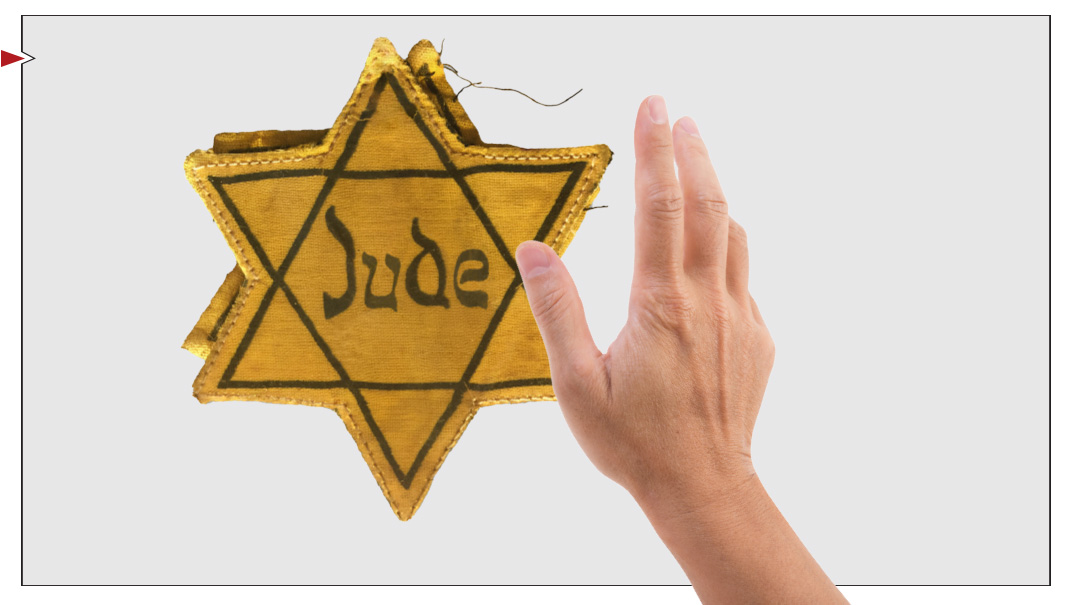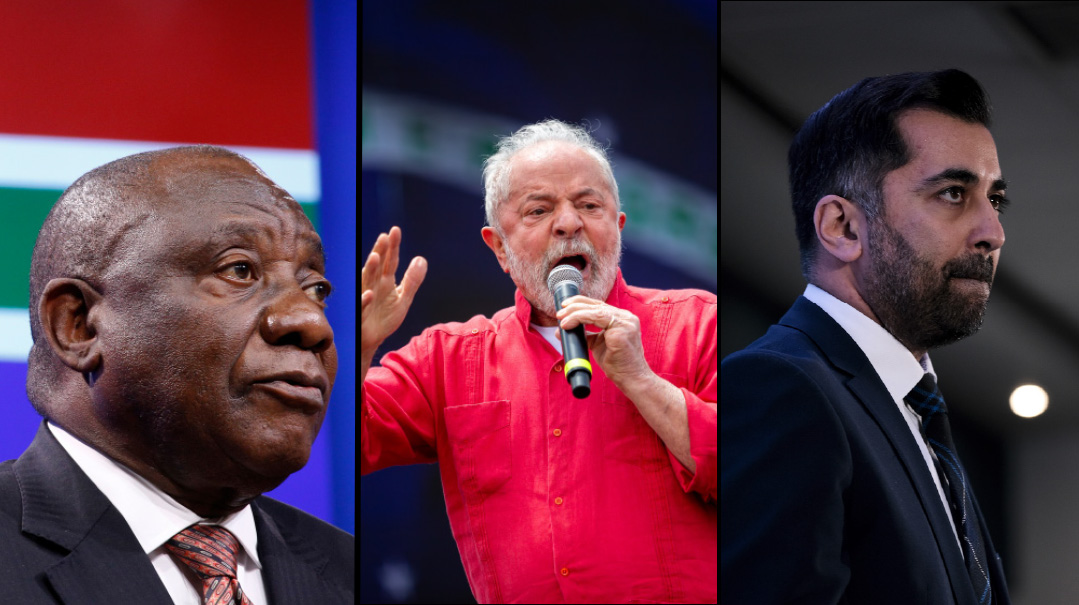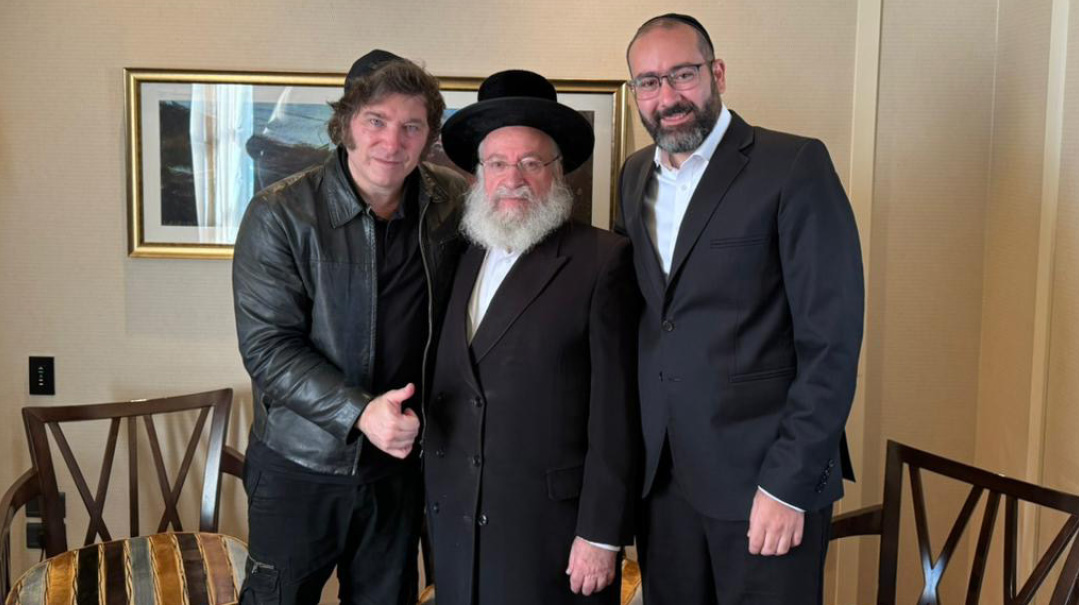Hands Off the Holocaust

Trivialization of the Holocaust is a feature of political extremes everywhere

T
he survivors are still with us, horror etched into their arms, yet a mere 75 years after the killing ended, another injustice is taking place: The Holocaust is being reshaped into something universal in service of agendas that have nothing to do with the victims themselves.
Exhibit A is Vladimir Putin’s propaganda machine. For years, the Kremlin has painted modern Ukraine as fascist, chock full of latter-day Nazis. Doubling down on that narrative two weeks ago, Russian foreign minister Sergei Lavrov told an Italian interviewer: “So what if Zelensky is Jewish? The fact does not negate the Nazi elements in Ukraine. Hitler also had Jewish blood — the most ardent anti-Semites are usually Jews.”
Putin’s apology to Naftali Bennett didn’t change the fact that the Holocaust — specifically painting foes as Nazis — has become a staple of Russian foreign policy.
But Ukraine isn’t innocent either. Putting aside the country’s anti-Semitic past, President Zelensky’s repeatedly drawn parallels between his country’s fate and the Holocaust — invoking the “Final Solution” in a speech to the Knesset — are at odds with historical reality.
Ukraine is undergoing an unprovoked war of aggression, in which thousands have died in bombardments that are crimes against humanity. But the Russians don’t want to kill every last man, woman, and child simply because of their genes. Theirs is not a hatred that has been nurtured for a thousand years. They want territory and empire, not every last drop of Ukrainian blood.
A more subtle, insidious distortion of Holocaust memory has taken root on the left. There, Holocaust education has been universalized, co-opted into a highlight of the anti-racism and tolerance agenda.
“We remember Holocaust Memorial Day,” said Michael Rosen, an author and Jeremy Corbyn supporter in a video resource for the National Education Union, “to remember a great crime against humanity, when between 11 and 15 million people — among them 6 million Jews — were killed by the Nazis.”
Remembering the Holocaust, Rosen continued, “is a way of saying to ourselves ‘Never Again’, so let’s take a big leap and look at the refugees crossing the English Channel.”
As ever, when it comes to Jews, the rules against cultural appropriation are suspended, and the suffering of our grandparents is transformed into something universal.
Trivialization of the Holocaust is a feature of political extremes everywhere, such as Republican lawmaker Marjorie Taylor Greene’s invoking the Nazis when speaking out against Covid-mask mandates.
It’s only natural that the passage of time lessens the intensity of the Holocaust’s pain.
But we shouldn’t put up with the insult to our murdered grandparents that is the current trend of Holocaust distortion. The pain is too recent, the scars too fresh.
To the Kremlin spin-doctors and those on the far left unhappy to be reminded of Jewish suffering, we have to say clearly, “Hands Off the Holocaust.”
To the many of good faith for whom “Never Again” is more than a slogan, we have to say loud and clear that the Holocaust wasn’t just the worst genocide in history. It was a uniquely diabolical anti-Jewish hatred that has no parallel.
Them Were the Days
For fans of the genre, Joe Biden — a self-described “gaffe machine” — provides a weekly dose of presidential foot-in-mouth.
“Even back in the old days, when we had real segregationists like Eastman and Thurmond,” the president said in remarks about the recently-passed Bipartisan Innovation Act, “at least we ended up eating lunch together.”
I know I should feel righteous anger at the free pass he’s given by a docile media who would pounce on a Republican for saying the same thing etc., etc., etc. But in all honesty at this point, there’s just something slightly endearing about Joe Biden’s penchant for saying things that are downright pre-modern.
61
How long can a government without a majority last in Israel? The answer is, until the opposition musters 61 votes to unseat it. Since 2014, Israeli law requires a “constructive no-confidence” vote to change the government mid-Knesset session, meaning that it’s not enough to have a majority of lawmakers against the current government — a majority need to express confidence in a new government.
Given that a majority of Arab lawmakers detest Bibi more than they detest the incumbents, that magic number could be some time off.
Irish Times
In the unlikely event that Joe Biden is short of things to talk about when he meets with President Bougie Herzog on his upcoming visit to Israel, he might want to discuss Irish politics.
Biden is known to play up his Irish heritage, famously leaning toward Ireland in its recent disputes with Britain over Brexit. Ties between the Republic and British-ruled Northern Ireland have grown more fraught after the Sinn Fein, or Irish Nationalist Party, which backed the IRA terror group in its struggle against the British government, recently won an election in the island’s north.
Should things come to that, Herzog will undoubtedly find himself mentioning his grandfather’s example of pan-Irish peace. Revered Israeli chief rabbi Rav Yitzchak Isaac Herzog was chief rabbi first of Belfast, Northern Ireland, and then the Republic of Ireland from 1921 until 1936.
(Originally featured in Mishpacha, Issue 910)
Oops! We could not locate your form.







